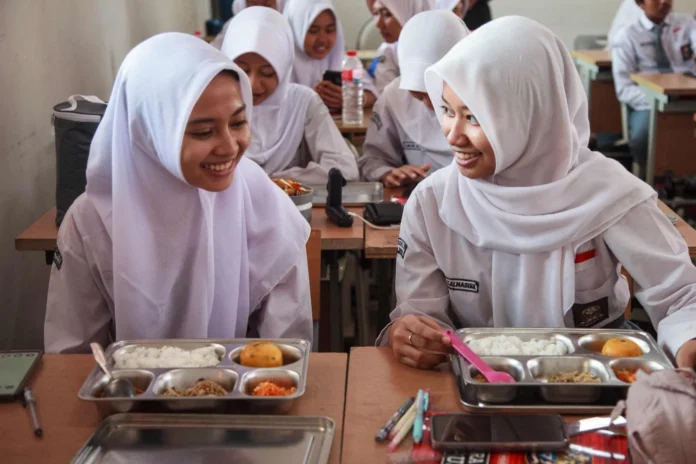Indonesia’s flagship free meal programme, launched to tackle malnutrition, has been linked to nearly half of all food poisoning cases recorded this year, a government official told lawmakers on Wednesday.
The billion-dollar initiative, introduced by President Prabowo Subianto in January, has sickened thousands nationwide and drawn criticism over poor hygiene standards in participating kitchens.
Head of the National BGN Agency, Dadan Hindayana, said more than 11,000 people had suffered food poisoning since the scheme began, with over 600 hospitalised.
“Out of 441 recorded incidents of food poisoning, the free meal programme accounts for 211 incidents, or 48 percent of these cases,” Dadan said. He added that each outbreak often involved large groups of people, sometimes in the thousands.
Last month, more than 660 pupils from two schools in Central Java fell ill with diarrhoea, nausea, and dizziness after eating government-provided meals. Dadan noted that about half of the food poisoning cases linked to the scheme were caused by E. coli contamination.
The government has since tightened oversight of the kitchens responsible for preparing the meals, requiring sterilisation of trays and utensils, and the use of filtered water for cooking and washing.
There are currently over 14,000 kitchens operating under the programme, which Dadan said has served meals to more than 42 million people as of November.
Food insecurity remains a major concern in Indonesia, where stunting affects more than 20 percent of children. The government had set a goal of providing nutritious meals to 82.9 million people — roughly one-third of the population — by the end of the year.
The initiative, funded by sweeping budget cuts, has faced public backlash and sparked protests over rising inequality.
President Prabowo has defended the programme, arguing that the number of poisoning cases is small compared to the scale of its reach. He has also described it as a success recognised internationally.
The current beneficiaries include children, toddlers, and pregnant or breastfeeding women. The government plans to expand the scheme in 2026 to include the elderly and people with disabilities.

